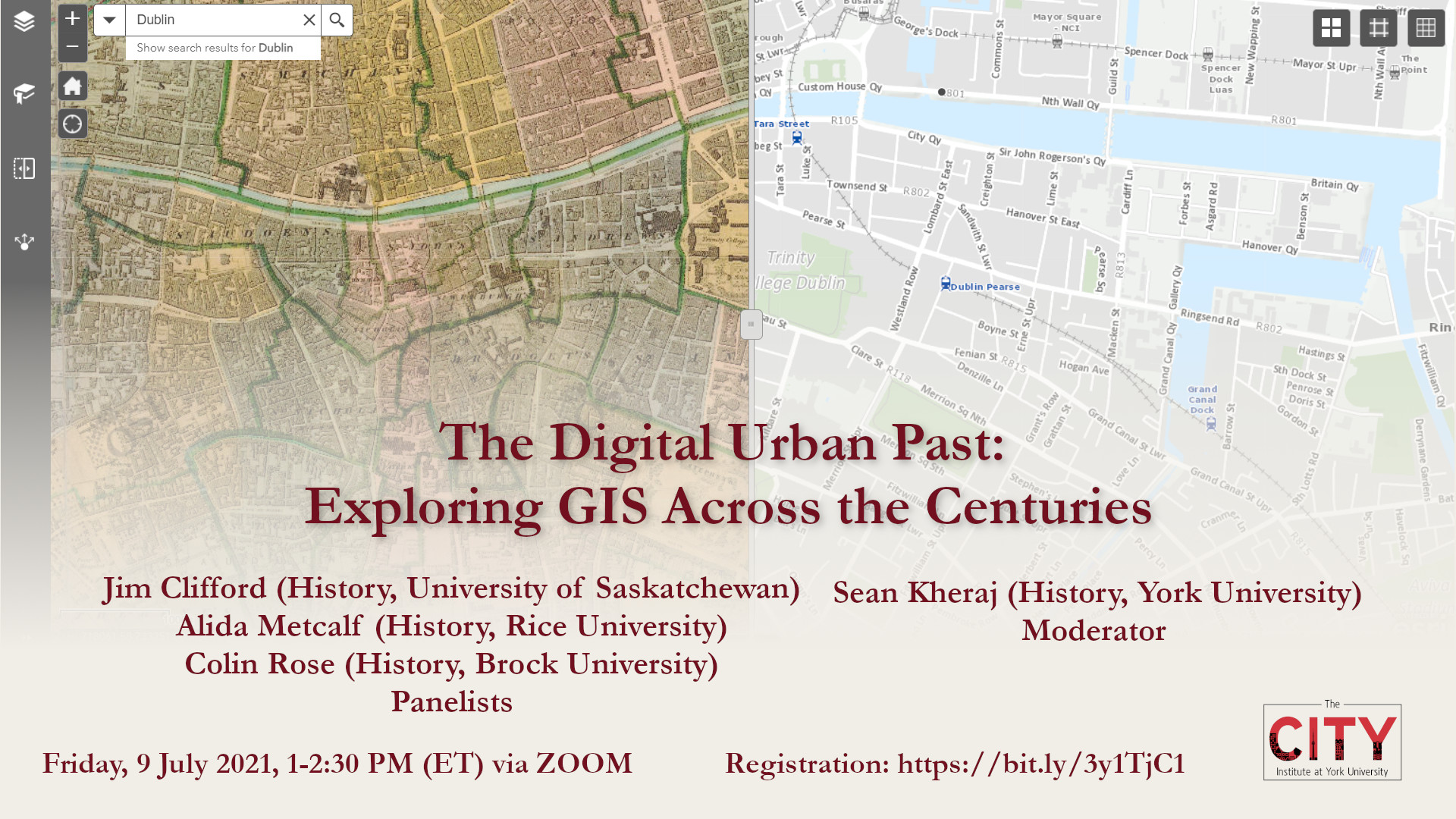
The Digital Urban Past: Exploring GIS Across the Centuries
With the rise of digital and spatial history within the broader world of digital humanities over the past twenty years, this seminar explores how different types of source materials have been integrated into geographical information system (GIS) databases to illuminate the urban past in new and exciting ways. The City Institute has invited scholars to share their research experiences and insights from projects on the cities of Florence, London, and Rio de Janeiro.
Speakers:
Jim Cliffordis an associate professor of History at the University of Saskatchewan. He is an environmental and urban historian of Britain, Canada, and the British World during the long nineteenth century. Using digital methods including historical GIS, text mining and augmented reality, his research team has explored industrialization in Greater London and the global commodities in the projectLondon's Ghost Acres (1850-1919)focused mainly on the intersections between environmental, social and political history. He is the author ofWest Ham and the River Lea: A Social and Environmental History of London's Industrialized Marshland, 1839-1914 (2018).
Alida C. Metcalfis Harris Masterson, Jr. Professor of History at Rice University in Houston, USA. She is the author ofFamily and Frontier in Colonial Brazil(1992; 2005),Go-betweens and the Colonization of Brazil(2005),Mapping an Atlantic World circa 1500(2020), and, with Eve M. Duffy,The Return of Hans Staden: A Go-between in the Atlantic World(2012). With Farès el-Dahdah she developed the digital humanities projectimagineRio, which maps and illustrates the social and urban evolution of Rio de Janeiro from 1500 to the present.
Colin Roseis an assistant professor of History in Brock University. He is an historian of early modern Europe, specifically of northern Italy in the sixteenth and seventeenth centuries. As a social historian, he is concerned with the ways that communities of ordinary Italians managed their day-to-day conflicts and crises, and adapted to new forms of governance and power that emerged with the consolidation of ducal states in the region. He has co-editedMapping Space, Sense and Movement in Florence: Historical GIS and the Early Modern City(2016), for which he also co-authored three chapters. Colin is currently the co-principal investigator ofDECIMA, a GIS mapping tool that allows historians to explore Florence's evolving urban dynamics.
Moderator:
Sean Kherajis an associate professor of Canadian and environmental history in the Department of History at York University and associate dean for programs in the Faculty of Liberal Arts and Professional Studies. His current research looks at the social and environmental consequences of the development and operation of oil pipelines in Canada. He has started with preliminary work on the history of oil pipeline spills in Canada and is now exploring the historical, social, economic, and environmental consequences of on-shore oil spills in Canada. This project is documented on the website"Silent Rivers of Oil: A History of Oil Pipelines in Canada since 1947."Sean is also director of the Network in Canadian History and Environment where he hosts and produces Nature's Past, a monthly audio podcast about the environmental history research community in Canada.
This event is presented byCity Institute at York University (CITY).

